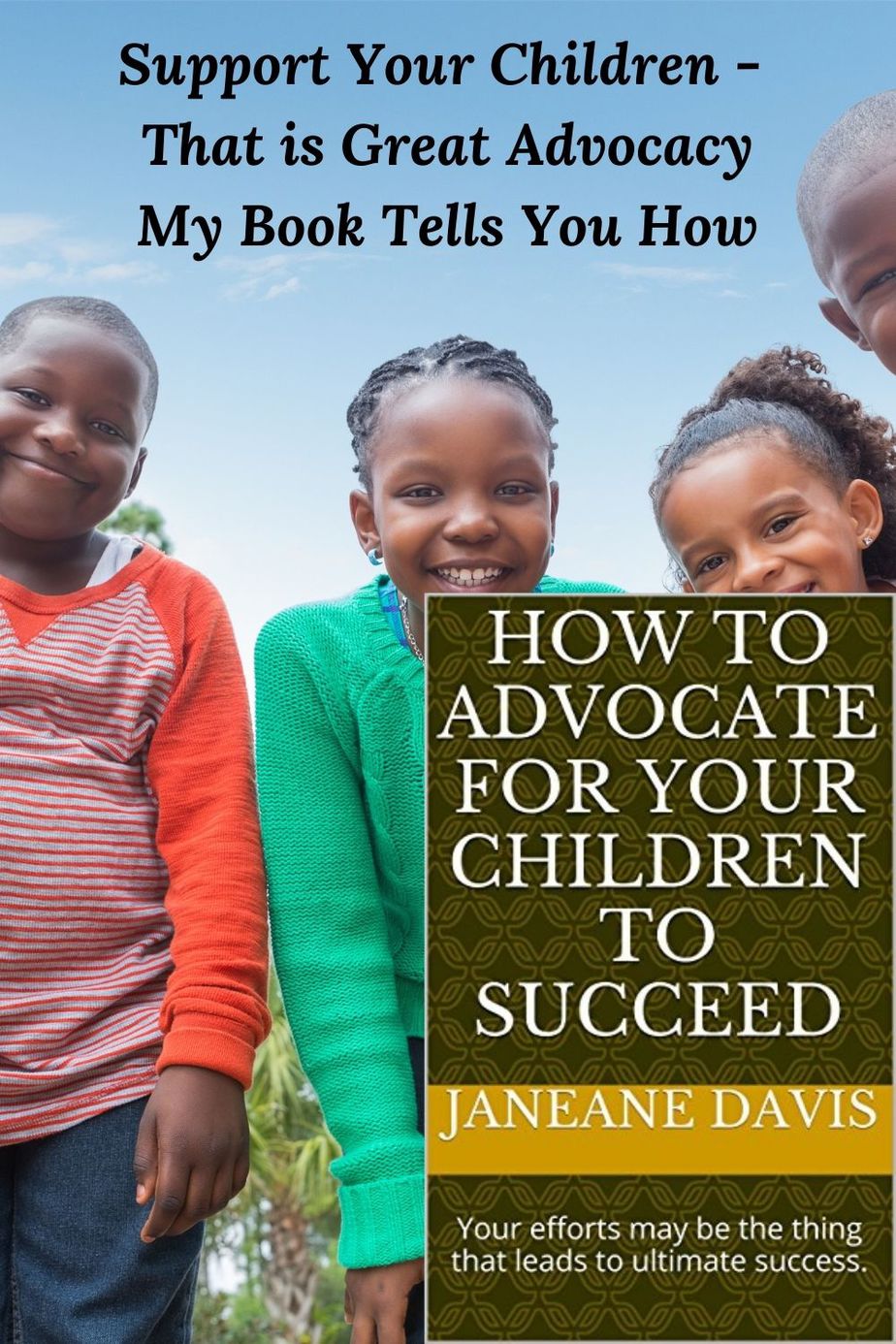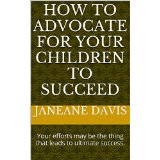 Advocate for your children, that is a way of being supportive.
Advocate for your children, that is a way of being supportive.

When it is time to advocate for your children, one of the best and most important things you can do is to support them. It is important to note that support takes many forms. Three of the most important parts of supporting your children are:
• keeping a protective covering around your children
• teaching your children the power of positive thinking
• not allowing your children to talk badly about themselves.
Of course, there are millions of more ways to be an advocate for your children. However, these three are great places to start your work.
Keep a protective covering around them is a great way to your children.
One of a parent’s most important duties is to keep a protective covering around their children. This means that your child should know what it feels like to be loved and supported. In each family, there are relatives who like to complain, who think no one and nothing is ever good enough for a positive or kind word. In some families, this is a grandparent, an aunt, or a cousin.
It does not matter who it is, these people do not need to be near your children. Children do not have the wisdom and life experience to say to themselves, “Uncle Tom is a miserable man who never has a good word to say about anything so I can just ignore his harsh words.” As a result, you must keep the Negative Neds and Nellies of your family away from your children. One of the best ways we protect our children is by keeping the bad people away.
Most adults have friends who complain all the time, who never seem to have a kind word for anyone. Keep these friends away from your children. Children look at their parents and their parents’ friends with the idea that “birds of a feather flock together.” So, if you have a friend or two that are Negative Nellies, keep them away from your children. When you associate with people who are negative, who do not support your children, or who do not actively work to uplift your children you give your children the message that it is okay for people not to support them. It gives the children the impression that it is okay for people not to uplift them, and not to advocate on their behalf.
Train people how to treat your children.
When you take your children to a relative’s house and that relative does not uplift them or who actively insults them and hurts their feelings, you are insulting your children. Because you are taking your children to these places, you are hurting your children’s feelings. What you allow others to do to your children; you do to your children. That is why you must allow your children to see that you put a protective covering around them. Your children need to see that you value their feelings more than you value the company of people who do not speak positively about and to your children.
It is a popular saying in pop psychology that you train people how to treat you. By keeping your children away from these people, you are training your children how they should expect to be treated. As parents, we train our children how to let people treat them by the way we let people treat them. Therefore, if you want your children to grow up thinking they deserve courtesy and respect; you must not allow your friends and family members to treat your children poorly.
Advocate for your children by teaching them the power of positive affirmations.
One thing that goes along with providing a protective covering for our children is teaching our children the power of positive thinking. It is important to teach your children to start positive thinking before they get out of bed in the morning. Almost everyone has heard about affirmations and the power they have to influence outcomes. Just as affirmations are a powerful tool for adults, they are a powerful tool for children. It is important to teach your children to speak good words over themselves and their lives each day when they wake up.
The words to say, the affirmations to use vary from person to person, child to child. For instance, here are a few basic ones I taught my children:
- • I am **** Davis, God loves me, I love me and I am special
• Don’t get ready, stay ready
• One monkey don’t stop no show
• Treat others how you want to be treated
• Sometimes, you have to pat your own self on the back.
Think of affirmations like tools your children put into their success toolkits. If your children get into the habit of saying their own positive affirmations to themselves each morning before they get out of bed, they will come to believe the words. It is important for your children to have positive affirmations they know by heart and believe in their hearts. It is important because these affirmations will be ready in their hearts and minds and on their lips when trials and tribulations come their way.
Teaching your children the no negative self talk rule is a great way to advocate for your children.
After you protect your children from the Negative Neds and Negative Nellies and know how to use the power of positive affirmations, it is time to teach your children not to bad talk themselves. This is an important step in the process of advocating for the success of your children. This is not to say your children should lie to themselves or about themselves. Indeed, it is important for your children to recognize their place in the universe. Each child should know her strengths, weaknesses, and the benefits she brings to the world. When your child knows her place in the universe, she can speak about herself using good terms and not bad.
With children, just as with adults, it sometimes takes training and practice to learn not to bad talk oneself. The following is a common example of bad talking. Jennifer receives a compliment from her teacher that her report was very good. Instead of saying thank you and moving on, Jennifer responds as follows: “I wish I had more time, I would have added more sections and better illustrations.” By responding in this way, Jennifer takes some of the shine off her accomplishment in the eyes of her teacher and in her own eyes.
Incidents like this one, seemingly innocent and harmless ones, have an impact over the course of time. Just as water can wear away at a mountain over time, downgrading or making less of one’s accomplishments wears away at one’s sense of good value, good qualifications, and sense of self-worth.
Learning how to respond to compliments is a great tool.
Another thing children do when complimented is to remark that someone else did the thing better. Yet another response some children have when complimented is to say, “It is nothing, anyone could have done that.” Still another response that shows bad talk is when told they are pretty, smart, or talented, and the children respond, “No, I am not pretty, smart, or talented.”
Children must learn not to say these bad things about themselves. It is important that children learn to accept compliments and to compliment themselves with no negative words, thoughts, and actions. Take time now to teach your children to compliment themselves. Take time now to teach your children not to insult themselves. These lessons will be valuable throughout their lives.
Want more help to become the best advocate you can be?
This article is one in a series of articles exploring the ideas discussed in the book. These articles are designed to help you learn how to so become a successful advocate. Read the articles and click here to get a copy of the book for yourself.

Here are links to all the articles in the series:
- How to Advocate for Your Children – My Book Tells You How
- Want to Advocate for Your Children – Support Them
- Support Your Children – That is Great Advocacy
- Use Your Work Skills at Home – Advocate for Your Children
- Your Children Need to Learn to Advocate for Themselves – Teach Them
- Be Your Children’s Best Advocate
- Preparing to Speak for Your Children
Never forget that anyone can be a great advocate for their children. Stay tuned for the next article in the How to Advocate for Your Children series: Teach Your Children to Advocate for Themselves.
